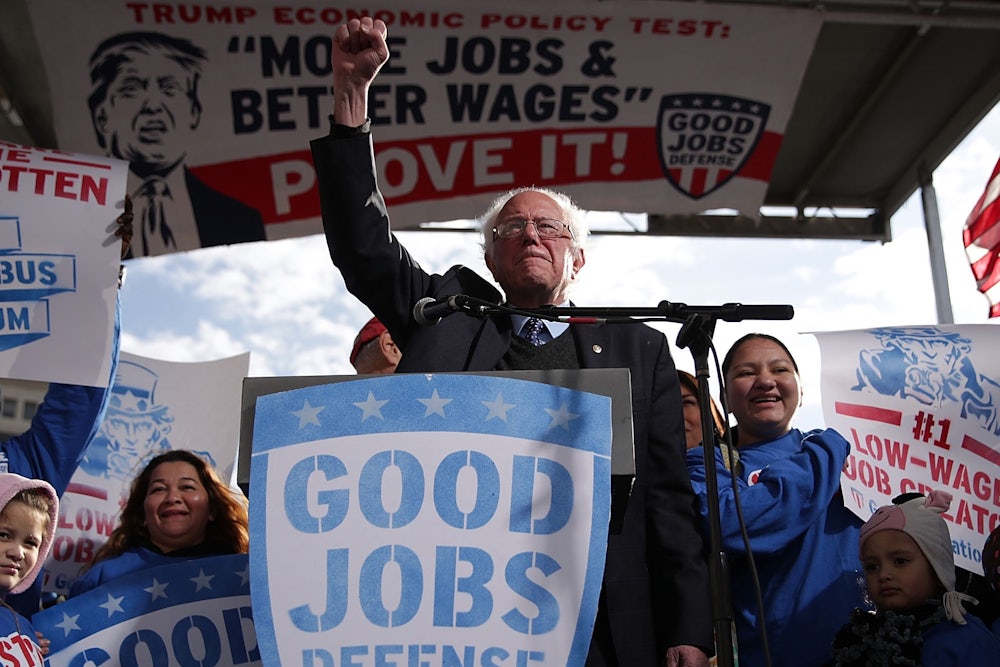There are a lot of potential takeaways from Donald Trump’s victory last month—that Americans have a high threshold for proto-fascism, for instance—but conservative columnist Michael Barone believes the election result was an outright rejection of American liberalism. In an article Wednesday in The Washington Examiner, “The collapse of the political left,” he calls Hillary Clinton’s loss proof that “the left can’t jam its policies down on the whole nation” and should instead “develop policies acceptable not only to its own base but with voters among whom it fell agonizingly short this year.”
It’s obviously true that the Democratic Party needs a new strategy. Though she won the popular vote by more than two million, Hillary Clinton lost white college-educated voters to Trump, and his support from the white working class made the difference in swing states. As long as the Electoral College remains, these political realities can’t be ignored. Still, Trump’s win is hardly the disaster for liberalism Barone makes it out to be.
“It has been clear that most voters have been rejecting big government policies,” he writes. And yet, polling this year showed broad support for Democratic priorities. According to Gallup, 60 percent of Americans said “upper-income Americans pay too little in taxes” and 59 percent backed “providing free child care and pre-kindergarten programs for all Americans.” Concern about global warming—which Trump called a hoax invented by the Chinese—reached an eight-year high, and the Pew Research Center found majority support among voters for a federal minimum wage of $15 an hour. Approval of lower minimum wage hikes is even higher.
In a sense, Trump’s success confirms the popularity of activist government, at least when it benefits white Americans, in the Republican base. His victory, especially in the GOP primary, was actually a rejection of small-government conservatism in favor of his self-styled right-wing populism. “This is called the Republican Party. It’s not called the Conservative Party,” Trump told ABC News in May. At various points he has supported universal healthcare and massive infrastructure spending, and has proposed a host of big government policies. He’s never been in sync with congressional Republicans intent on paring back social insurance programs like Medicare.
Barone misreads recent political history, too. “It’s been a tough decade for the political left,” he writes. As his only evidence for this statement, he contrasts Time and Newsweek covers from eight years ago (“The New New Deal” and “We Are All Socialists Now,” respectively) with the former’s 2016 Person of the Year, Donald Trump. Setting aside that Time’s selection is based on “greatest influence, for better or worse, on the events of the year”—Obama did in fact accomplish a kind of “New New Deal” over the past eight years. The Affordable Care Act is the left’s greatest accomplishment since the Great Society, and Obama is akin to both Franklin Delano Roosevelt and Lyndon Baines Johnson in ushering in nearly a decade of progressive progress. Beyond healthcare there was the stimulus, financial reform, marriage equality, worker and environmental protections—and that’s just domestic policy.
Much of this may be undone under Trump, but it’s ahistorical to argue the Obama years haven’t advanced liberalism significantly. As Barone himself notes, “Barack Obama was elected with 53 percent of the popular vote—more than any candidate since the 1980s—and Democrats had won congressional elections with similar majorities in 2006 and 2008.” And most Americans approve of Obama’s job performance even now, after Trump’s election.
The Democratic Party does need to win back the voters it lost to Trump—and even more importantly, to turn out the many Obama voters who stayed home. But the solution is not Tony Blair–style centrism, which Barone touts in his column. In fact, if Bernie Sanders’s success with white working class voters is any indication, Clinton’s fatal flaw was being too closely associated with an outdated, hawkish, corporate neoliberalism.
“You didn’t hear Hillary Clinton campaign on the glories of Obamacare or the Iran nuclear deal,” Barone notes. He’s absolutely right—and Clinton’s failure to do so was precisely the problem. The solution is to espouse the genuine liberalism that Barone has declared dead.
